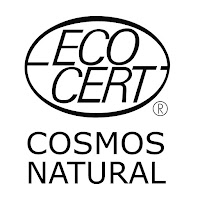SUSTAINABLE PALM OIL
What are the problems surrounding palm oil in cosmetics?
At Codibel’s lab we have recently received many questions regarding the use of palm oil in cosmetics. It is known that the uncontrolled development of palm oil plantations can contribute significantly to deforestation, loss of biodiversity and habitat and can even influence climate change from the loss of peatland.
We at Codibel share the widespread concern about these issues and are committed to reducing the impact on the environment.
The purpose of this blog is to explain why palm (kernel) oil and its derivatives are used in cosmetics, where you are likely to find these ingredients, and how to choose a product correctly to ensure you can support us in our strive to reduce the massive problem of deforestation associated with indiscriminate palm oil farming.
Palm oil and palm kernel oil are very versatile vegetable oils, and palm oil trees produce higher yields per hectare, than any other oil seed. These facts, combined with relatively low production costs when grown on a large scale, explain why these vegetable oils are so popular, for food and also in the personal care industry. Indeed, palm oil is used in approximately half of all consumer goods, such as biofuels, packaged foods and personal care products….
Read the label
First and foremost, to be clear, palm oil is not used directly in any of the products manufactured by Codibel, including our Pure Elements range. However, some common raw materials used in cosmetics are made from palm (kernel) oil derivatives. This means that we are an INDIRECT user of palm oil, whether we like it or not.
The main raw materials used in cosmetics that may contain some form of palm oil derivative are the following :
• Glycerin
• Cocamidopropyl betaine and coco betaine
• Fatty acids: stearic acid, palmitic acid, myristic acid, lauric acid
• Fatty alcohols: cetyl alcohol, cetearyl alcohol, stearyl alcohol, lauryl alcohol
• Esters made from fatty acids or fatty alcohols: cetyl palmitate, cetyl phosphate, myristyl myristate, glyceryl (mono-) stearate and glyceryl oleate
• Triglycerides: C8-C10 caprylic/capric triglyceride and C10-C18 triglycerides
So, if you see these names mentioned in the list of ingredients, the product may indeed contain some palm oil derived raw materials. Some of these ingredients can also be produced from other oil sources, such as coconut or rapeseed, so this is always an option that we explore at Codibel before selecting our supply source.
What are the other options?
However, simply replacing palm oil with other vegetable oils is not a viable long-term option, as that would require more land, and would more than likely lead to even greater deforestation. In addition, in palm oil producing countries like Indonesia and Malaysia, millions of farmers and their families depend on work in this industry for their livelihood.
Therefore, our main concern is to ensure that our products only contain raw materials that have been produced from sustainably sourced palm (or palm kernel) oil such as RSPO certified (or equivalent).
What is “RSPO”?
Since 2004, the Roundtable on Sustainable Palm Oil (RSPO), a nonprofit organization that unites stakeholders from the palm oil industry, has been working to develop and implement global standards for sustainable palm oil.
The RSPO has developed a set of environmental and social criteria which companies must comply with in order to produce Certified Sustainable Palm Oil (CSPO). When properly applied, these criteria can help to minimize the negative impact of palm oil cultivation on the environment and communities in palm oil-producing regions.
What is Codibel’s commitment?
Since 2017, Codibel has a plan in place to reduce the use of palm-oil derived ingredients from unsustainable sources in all products. By the end of 2018, we had already reached 90% (expressed as volume in kg) of identified ingredients that had been changed to sustainable versions, and the trend will continue. Our commitment is also fully supported by the standards we have elected to adhere to, notably the EU Ecolabel and the COSMOS standards*. As from 1st January 2020, all palm oil derivatives used in products certified under the COSMOS standard MUST be from RSPO or equivalent sources. And this is already the case for EU Ecolabel products. Therefore, when you choose to use one of our certified products (Pure Elements Organics or Kursaal Green) you are helping us to support our commitment to a better planet, by only using products that do not contribute to uncontrolled deforestation and devastation of the environment.
We hope that this short blog has helped you to understand how the companies forming part of the “foreward-thinking” cosmetics industry, including Codibel, are directly contributing to the reduction of the use of unsustainably sourced palm (kernel) oil and its derivatives. There is still much work to be done, but each step we can take in the right direction to protect our planet is our valuable legacy for the future generations.



Comments
Post a Comment